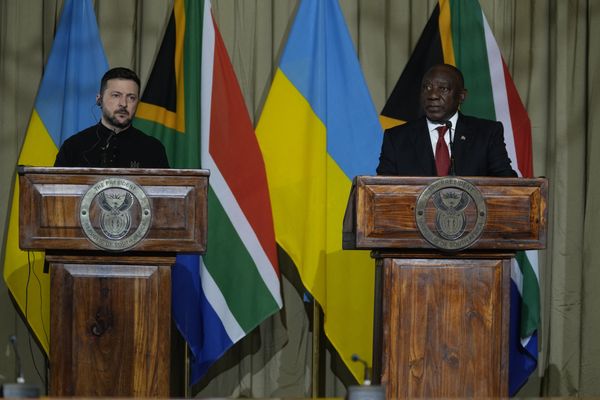
South Korea’s Truth and Reconciliation Commission has found the country’s past military governments responsible for atrocities committed at Brothers Home, a state-funded facility for vagrants where thousands were enslaved and abused from the 1960s to the 80s.
The landmark report on Wednesday comes 35 years after a prosecutor first exposed the horrors at the facility in the southern port city of Busan and detailed an attempted cover-up of evidence that would have confirmed a state-sponsored crime.
From the 1960s to the 80s, South Korean military dictators ordered roundups to beautify the streets.
Thousands – including homeless and disabled people, as well as children – were snatched off the streets and brought to facilities where they were detained and forced to work.
Many inmates were enslaved, raped and, in hundreds of cases, beaten to death or left to die, according to dozens of interviews with survivors and a review of an extensive range of government and Brothers documents obtained by The Associated Press news agency.
In the lead-up to the 1986 Asian Games and 1988 Olympic Games, in particular, South Korea’s military government was preparing to showcase the country to the world and wanted “vagrants” removed from the streets and out of sight.
The commission’s chairperson, Jung Geun-sik, urged the South Korean government on Wednesday to issue a formal apology to survivors and explore ways to ease their suffering as he announced the initial results of its investigation into Brothers, including extreme cases of forced labour, violence and deaths.
JUST IN: South Korea’s Truth and Reconciliation Commission finds grave human rights violations at #BrothersHome, a state-funded social welfare centre, where thousands were kidnapped, enslaved and abused in 1970s and 1980s.
Watch our investigation: https://t.co/fmhMLriOEG pic.twitter.com/s2a71tSy2c
— 101 East (@AJ101East) August 24, 2022
Al Jazeera’s Rob McBride, reporting from Seoul, said the commission’s “investigation will take several years and will look into alleged cover-ups by multiple government bodies”.
“Among the most vulnerable members of South Korean society, the victims of the notorious centre say their suffering has gone largely overlooked for years and that it is only now their country is coming to terms with their plight,” he said.
No accountability
The violence and abuse at Brothers were even worse than previously known, the commission said.
The commission said its examination of records so far points to at least 657 deaths at Brothers, which was higher than the previously known tally of 513 between 1975 and 1986 documented in the facility’s records.
The commission also confirmed that Busan police randomly seized people off the streets to send them to Brothers, regardless of whether they had easily identifiable homes or families.
They often allowed Brothers employees, who toured the city in trucks, to do the kidnapping themselves.
Brothers, run by late owner Park In-keun and his family, also embezzled the wages of thousands of inmates who were forced into slave labour, which involved construction work at Brothers and off-site and in factories making clothing, ballpoint pens and fishing hooks.
So far, no one has been held accountable for hundreds of deaths, rapes and beatings at Brothers.
Chairperson Jung acknowledged that the recommendations the commission makes to the government are not binding but said its findings could be used as evidence for survivors if they pursue lawsuits for damages against the government or any remaining Brothers stakeholders.
The commission did not directly recommend the pursuit of criminal charges.
1988 Olympics roundup
The commission’s report was based on its investigation into the cases of 191 individuals, who were among 544 Brothers survivors who have so far filed applications. The commission plans to produce more reports as it continues its investigations.
In interviews with dozens of former Brothers inmates, many said that as children, they were brought to the facility after police officers kidnapped them, and that their parents had no idea of their whereabouts.
The commission said the facility’s death records describe many of the victims as already dead upon arrival at hospitals, which it said either indicates dismal health conditions at the overcrowded facility or an attempt to conceal deaths caused by beatings and torture.
The roundups intensified as South Korea began preparing to bid for and host the 1988 Summer Olympics.
Brothers, a mountainside compound in Busan, was the largest of these facilities and had about 4,000 inmates when its horrors were exposed in 1987.
Kim Yong Won, the former prosecutor who exposed Brothers, said high-ranking officials blocked his investigation under direction from the office of military strongman Chun Doo-hwan, who feared an embarrassing international incident on the eve of the Olympics.
The commission began investigating the Brothers abuse in May last year, following a years-long struggle for redemption by Brothers survivors, many of whom who are struggling with financial and health problems.







